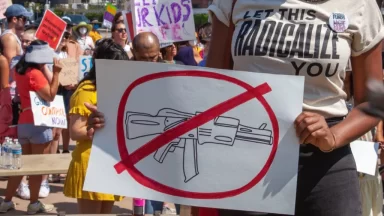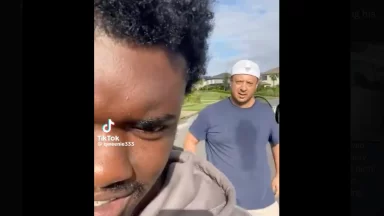WASHINGTON — As the nation’s capital braces for the upcoming presidential election, heightened political tension poses unique threats to Washington, D.C.’s unhoused residents, who are some of the most vulnerable in this politically charged environment. At Washington Circle, near the Foggy Bottom Metro, tents mark the encampments of those displaced in recent months, underscoring the growing need for safety as Election Day approaches.
Christy Repress, President and CEO of Pathways to Housing DC, leads the city’s largest outreach initiative for individuals experiencing homelessness. She and her team are preparing for potential unrest with protocols refined over years of navigating inaugurations and major protests. “This population is particularly vulnerable due to decades of racial disparities in housing and employment,” Repress explained. “The threat is compounded by the city’s racial demographics, where 83 percent of those without housing identify as Black or African American.”
Recent data underscores the heightened risks. According to the National Coalition for the Homeless, 97 violent attacks against unhoused individuals were documented between 2019 and 2022, nearly half of which were fatal. Repress notes that the numbers reflect only reported incidents, with many more likely unrecorded. Adding to the concern, a recent Supreme Court ruling, Johnson v. Grant Pass, clarified that “the U.S. Constitution does not protect homeless people against cruel and unusual punishment,” a decision advocates fear could embolden acts of aggression.
To address these risks, Repress and her team are intensifying education and outreach efforts aimed at the unhoused. Pathways has coordinated with city agencies to use real-time text alerts, notifying individuals about potential hazards, closures, and other critical updates. “Lack of access to these resources can mean missing life-saving information,” she emphasized, noting that the absence of timely updates often means lost documents or missed opportunities to seek shelter, compounding the dangers.
For Washington’s most vulnerable, Election Day symbolizes more than just a political event; it is a moment of heightened uncertainty and potential danger. Local advocates are doubling down on efforts to protect and inform, hoping that their vigilance can mitigate some of the risks facing the city’s homeless population in an election year marked by tension and division.



Recent Comments